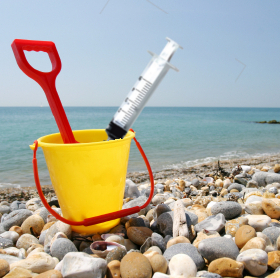High-rolling patients could bring good money on holiday
 As many residents combine holidays with cheap medical treatments, a growing trend is seeing more international tourists booking treatments while visiting Australia.
As many residents combine holidays with cheap medical treatments, a growing trend is seeing more international tourists booking treatments while visiting Australia.
Many Australians have been lured overseas by the promise of cheap plastic surgery and dental work, but our domestic facilities for high-tech robotic surgery, in vitro fertilisation (IVF) treatments and cancer care are now bringing in thousands of medical tourists every year.
Authorities have noticed the trend, and those in Victoria especially want to maximise numbers and create a new industry.
“If you think of international education, how important that is to the Australian economy, in Victoria it's the number one export, in Australia it's the third leading export. I think international healthcare could rival that in a decade or two,” Professor John Catford said over the weekend.
Dr Catford is medical director for the state’s largest private hospital group.
“We need a supportive government framework that actually encourages it and actually sorts out particular barriers or obstacles. A typical one would be visas so people can come in easily, with their families support, to receive medical care,” he said.
Victorian Health Minister David Davis is on the same page, saying; “We see inbound tourism of that type as just one part of a broader health export strategy that the state is developing.”
“That would include conferences and would include inbound research support and inbound investment,” he said.
The Minister is not too concerned that a rise in medical tourism would mean public hospitals are less able to cover local patients.
“I think what will be seen is greater public capacity because if you've got additional revenue flows coming into our health system in Victoria that can help fund additional capacity and also fund the additional research streams that are very important,” he said.
President of the Australian Medical Association (AMA), Dr Stave Hambleton, says that while it is definitely a viable idea, the industry could suffer if it is expanded too quickly. He also says increased movements of this type bring heightened risk.
“The reality is that if you live there there's a good chance you will be carrying those multi-resistant organisms and when you go internationally you will take them with you,” he said.
“Now the problem occurs when you have surgery, major surgery, maybe a hip replacement or knee replacement and therefore you're quite sick or quite stressed by that physically, that organism that you could be carrying with you could become invasive and if it does we won't be able to treat it either and of course there's a chance that organism will be left behind and we'll actually see those multi-resistant organisms take up residence here too.”







 Print
Print